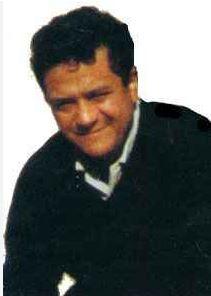Carlos Castaneda

Carlos Castaneda (1925–1998) was a Peruvian author and anthropologist known for his books about his alleged experiences with shamanism and the Yaqui Indians of Mexico. He became particularly famous for his works in which he recounted his apprenticeship with a shaman named Don Juan Matus, a secret "nagual" who introduced him to the world of indigenous spiritual practices and consciousness-altering experiences.
Background and Career:
Birth and Education: Castaneda was born in Peru but later moved to the United States, where he studied anthropology at the University of California, Los Angeles (UCLA). Many of his books present his personal experiences and fieldwork related to the indigenous peoples of Mexico, with Castaneda posing as a scholar and researcher.
Introduction to Shamanic Teachings: Castaneda began his "research" on shamanism in Mexico when he met the Yaqui shaman Don Juan Matus. Don Juan is said to have taught him how to achieve mind-altering states through the use of plants such as peyote, teonanácatl (a mushroom containing psilocybin), and datura. These plants have a long history in shamanic tradition and were used to facilitate contact with spirits and spiritual dimensions.
The Don Juan Series:
Carlos Castaneda achieved international fame with his series of books about his experiences and training with Don Juan. The most well-known works are:
"The Teachings of Don Juan: A Yaqui Way of Acquiring Knowledge" (1968):
This book describes Castaneda's first encounter with Don Juan and his introduction to the world of indigenous shamanic practices. Castaneda recounts his experiences with psychoactive substances and the spiritual insights he gained through the use of these plants.
"A Separate Reality" (1971):
In this book, Castaneda further explores his experiences with Don Juan and describes the concept of "separate reality," an alternative perception of the world accessible through the use of psychedelic plants.
"Journey to Ixtlan" (1972):
This book contains a detailed account of Castaneda's travels and spiritual development. Don Juan's teachings on "losing oneself" and the concept of the "nagual" are further explored.
"The Power of Silence" (1987):
Here, Castaneda explores the importance of silence and inner perception, which plays a central role in spiritual development. He describes how one can attain deeper spiritual insights through silence and meditation.
Key Themes in Castaneda's Work:
Nagual and Tonal:
A central concept in Castaneda's work is that of the "nagual" and "tonal." The tonal refers to the structured, everyday world characterized by logic, order, and rationality. The nagual is the intangible, mystical realm of the unconscious and spiritual knowledge. The nagual is a state of hidden knowledge that the shaman can reach through trance and consciousness-altering experiences.
The Warrior's Journey:
Castaneda describes the path of the "warrior," a spiritual seeker who learns to develop self-discipline, courage, and awareness. The "warrior" strives to live in harmony with the "non-physical" world and to understand death not as an enemy, but as a constant companion.
Expansion of Consciousness:
A central theme in Castaneda's work is the idea that human consciousness can be expanded through the use of plants and spiritual practices to recognize the true nature of reality. This expansion of consciousness can also be understood as a "direct access to the spiritual world."
The use of psychoactive substances:
Castaneda frequently describes the use of psychedelics such as peyote and psilocybin-containing mushrooms to alter states of consciousness. These plants are a central component of shamanic practice, as they enable the shaman to enter other dimensions of perception.
Criticism and Controversy:
Authenticity of the Accounts:
Castaneda has been heavily criticized because many of his accounts have been considered fictional. There are doubts about the authenticity of his experiences, as many of Castaneda's experiences and encounters with Don Juan have been considered fabricated stories in the scientific community. There is no evidence that Don Juan actually existed.
Castaneda himself did not appear publicly as a narrator of fiction, and some of his critics accuse him of presenting his stories as authentic ethnographic accounts, when in reality they are more like
spiritual allegories or philosophies.
Influence on Western Esotericism:
Despite the controversies, Castaneda had a significant influence on Western esotericism and the psychedelic movement. His books inspired many Western readers and seekers seeking spiritual experiences or an alternative to the Western worldview.
Castaneda also influenced many modern neo-shamanism movements that became popular in the 1980s and 1990s, as well as spiritual practices that advocate the use of psychedelics for spiritual enlightenment.
Disappeared Public Presence:
In the 1970s, Carlos Castaneda largely disappeared from public view. He rarely appeared in the media and largely stayed out of the public eye. This fueled speculation and mystical legends about his life and practice.
Conclusion:
Carlos Castaneda remains a controversial and fascinating figure in the world of shamanism and spiritual literature. His books are a fascinating mix of anthropology, philosophy, and spiritual allegories that have inspired many people and led them to seek alternative spiritual paths. Whether one views his works as fictional narratives or as profound spiritual wisdom, Castaneda has left a lasting impact on the Western perception of shamanism and consciousness research.


